 Somehow each year, summer solstice sneaks up on me. Sure, the days get extraordinarily long here in the Northern Rockies, and sure everything is greening up fast. I have two goat kids who are now almost four weeks old, and yeah, the warmer weather is upon us. Still, I end up feeling unprepared for the solstice.
Somehow each year, summer solstice sneaks up on me. Sure, the days get extraordinarily long here in the Northern Rockies, and sure everything is greening up fast. I have two goat kids who are now almost four weeks old, and yeah, the warmer weather is upon us. Still, I end up feeling unprepared for the solstice.
Shaking Off Skadi’s Powers
Skadi reigns much of the time here in the Northern Rockies. That being said, Thor, Freyr, Freyja, and Baldr take hold around now. I heard Thor’s voice this week, announcing his arrival. Freyr and Freyja show their might as new life appears. Animals’ offspring follow them out of thickets and dens; the forests take on a lush green. The time for renewal is at hand.
Warning: Science!
In a scientific sense, the summer solstice is simply the time when our planet’s tilt is closest to the sun. Imagine our planet is a toy top that has been set in motion. At some point in the spin, the top begins to tilt and wobble as it slows down. That is what our planet is doing right now.

We know that millions of years ago, our days were shorter because our planet was spinning faster. As our planet’s spin slows, our days grow longer by 1.8 milliseconds a century. Eventually that will add up to more noticeably longer days, but certainly not in our lifetime, nor in the lifetimes of our children, grandchildren, or even great-grandchildren.
It’s this small tilt that makes it possible for us to have four seasons. When our side of the hemisphere is tilted away from the sun, we have winter. When it is tilted toward the sun, we have summer. It is the furthest tilt that brings us the solstices.
If you don’t find it simply amazing that something so slight as a small wobble could affect life on our planet, there’s something wrong with you. That feels like magic, plain and simple, even if it is science.
Thanks to the Gods for the Solstices
I can’t help but think that these happy coincidences which brought life to flourish on our planet were part of the gods’ plans. I’m willing to accept the science, and yet, the coincidences are astonishing.
Think about it. We live on a planet that basically won the lottery when it came to supporting life. Even if you’re not a creationist-type person, you have to admit we lucked out. Our gods have set in motion an amazing world, and we are damn lucky to have it. We’re damn fortunate to be here, given all the times our species has nearly gone extinct.
Understanding the Solstices as a Threshold
The summer solstice is a threshold of sorts. I’ve heard the term “liminal” used to describe certain parts of the year. The summer solstice is the longest day of the year, but at the same time, it heralds the loss of light until the winter solstice.
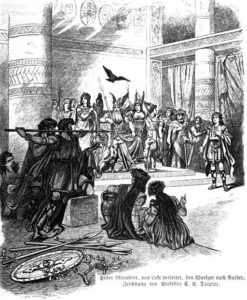 I think of the story about Baldr and Hodr. Baldr is made impervious to all things except the mistletoe. Loki gives Hodr a spear made from mistletoe and helps Hodr aim it. We think of Baldr as the sun on summer solstice. His blind brother, Hodr, is the oncoming darkness of winter. Each year, Hodr “slays” Baldr, but Baldr is eventually resurrected to shine once more.
I think of the story about Baldr and Hodr. Baldr is made impervious to all things except the mistletoe. Loki gives Hodr a spear made from mistletoe and helps Hodr aim it. We think of Baldr as the sun on summer solstice. His blind brother, Hodr, is the oncoming darkness of winter. Each year, Hodr “slays” Baldr, but Baldr is eventually resurrected to shine once more.
The solstices mark when the days are the longest, and when they are the shortest. After the summer solstice, we begin our march towards winter. The sunlight retreats until the winter solstice, when it returns again.
Celebrating the Summer Solstice
As Heathens, the solstices are our holy days. During the summer solstice, we thank the gods for the light and for our growing season. We ask for health and good harvests, even if we no longer have anything to do with farming. We celebrate our families and friends.
I find there is plenty to celebrate when it comes to the solstice. We may have dealt with some pretty shitty things in our lives, but we have to be among the living to still be here. The wonder that is our life is still amazing, and there is still plenty to learn and experience in this world.
Our Renewal with the Summer Solstice
Nowadays, people are pretty jaded when it comes to our seasons. Sure, people enjoy the warm weather, but there isn’t a lot of joy in the seasons, themselves. There certainly isn’t a lot of  wonder in them–we know what causes the seasons. At some point, people only look forward to the seasons as times for doing human activities, and not just marveling at the season, itself.
wonder in them–we know what causes the seasons. At some point, people only look forward to the seasons as times for doing human activities, and not just marveling at the season, itself.
Think about it. I doubt seriously most people sit and just meditate on summer when the summer solstice passes. You might, and maybe your heathen and pagan friends do, but most people just don’t. And yet, the summer solstice is a time for renewal. That includes renewing yourself as a heathen.
No matter how old you are, you can take part in that renewal. It can be as short as a few minutes, or as long as you feel is necessary. And yeah, it’s a type of magic, I suppose. You’re going to get in touch with the landvaetr, the gods, and the ancestors.
How to Renew Yourself During the Summer Solstice, and Beyond…
 Summer solstice is a time to thank the gods, the landvaetr, and the ancestors for everything. You may wish to have some mead or other offering to leave at your outdoor altar. If you don’t have an outdoor altar, you can choose a favorite tree outside. Whatever your offering is, be sure it is biodegradable and not poisonous to wildlife and pets.
Summer solstice is a time to thank the gods, the landvaetr, and the ancestors for everything. You may wish to have some mead or other offering to leave at your outdoor altar. If you don’t have an outdoor altar, you can choose a favorite tree outside. Whatever your offering is, be sure it is biodegradable and not poisonous to wildlife and pets.
- Start by sitting comfortably outside, preferably in a forest, park, or other place within nature. You can sit in a chair, on a bench, on a rock or log, or even on the ground, if you so choose. Close your eyes, or keep your eyes open. Doesn’t matter.
- Take deep breaths through your nose, and exhale through your mouth. Let your mind still as you breath in this fashion, and focus on relaxing each muscle group as you do.
- As you relax, you may notice your environment. Is it hot and sunny, or is it cool? Is there a breeze? What does the air feel like? What about where you are sitting? Are you comfortable, or do you feel uncomfortable because the ground is wet, insects are buzzing around you, or something is poking you in the butt?
- What do you smell on the breeze? Sure, you may get the smells of the city, but can you smell the flowers nearby? What do the trees smell like? Do you get an earthy scent from the moss and wet ground nearby? Does the air have a taste? Acrid from the city, or does it taste like the flowers nearby? Sharp like a pine tree? Woodsy like an oak tree?
- What do you hear? Sure, you may hear traffic and people, but is there a bird singing nearby? What does the leaves sound like when the breeze rustles through it? Do you hear the snort of a deer, or maybe the barking of a dog? Maybe the chittering of a squirrel.
- Open your eyes, if they aren’t already open. What do you see? Try to not take in everything, but focus on something natural: a flower, a tree, a river or stream, a mountain top, or maybe the ocean. Some may be too big or too small to focus on. That’s okay. Just move from one natural thing to another, if you’re not focusing.
- Look up and Sunna and thank her for the warmth of the first day of summer. Thank Baldr for the beauty of the sun at summer solstice. Thank Mani for the solstice moon.
- Thank Freyr and Freyja for the new life around you, whether it’s animals, plants, or even human babies.
- Thank Thor and Sif for the rains and the harvest that is to come. Ask for our farmers’ prosperity and a bountiful harvest.
- Thank whichever gods you wish to honor at this time.
- Thank the landvaetr for their tireless care over the land you sit on.
- Thank your ancestors, for without them, there would be no you to enjoy the moment.
- Pour an offering (or leave an offering) on your outdoor altar, or at the place you designated.
- Spend as much time as you’d like (or as much time as you’re permitted) enjoying the solstice.
Other Fun Ways to Celebrate the Solstice
I have another post on Five Ways Heathens can Celebrate the Summer Solstice. Check it out.
—
Thank you Sarra Keene for your support on Patreon. Without you, I would have a hard time keeping this blog going!
Did you know you can become my patron for as little as $5 a month? This entitles you to content not posted anywhere else. Plus you get to see posts like this three days before the public! Without patrons, I’d be having a very hard time keeping this blog going. Become a patron today! Become a Patron!
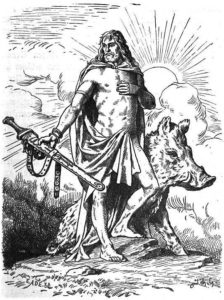 We’re coming up on August 1st, which is the August Harvest Festival, Hlæfæst. It’s also known to most modern pagans as Lammas. If you’re still using the AFA Holiday wheel-of-the-year, it’s called Freyfaxi. For obvious reasons, I’m not keen on the AFA world, and after having read about the story of Freyfaxi, I don’t consider it a good name for a harvest festival, although Freyfest might be more in tune with the holiday.
We’re coming up on August 1st, which is the August Harvest Festival, Hlæfæst. It’s also known to most modern pagans as Lammas. If you’re still using the AFA Holiday wheel-of-the-year, it’s called Freyfaxi. For obvious reasons, I’m not keen on the AFA world, and after having read about the story of Freyfaxi, I don’t consider it a good name for a harvest festival, although Freyfest might be more in tune with the holiday.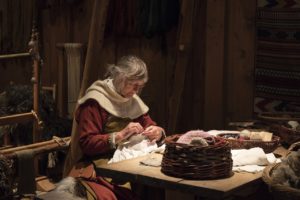 Hlæfæst is probably more of a modern day creation than it is a holiday from the past. We can kind of associate it with Lammas, which is the Wiccan/neopagan version of the holiday. It’s the first of three harvest festivals many Wiccans/neopagans celebrate. Lammas literally means “Loaf Mass” or “Loaf Feast.” As I said above, it has been Christianized, like so many of the pagan holidays, that we have to go by what little we can gleam from past traditions and historical notes.
Hlæfæst is probably more of a modern day creation than it is a holiday from the past. We can kind of associate it with Lammas, which is the Wiccan/neopagan version of the holiday. It’s the first of three harvest festivals many Wiccans/neopagans celebrate. Lammas literally means “Loaf Mass” or “Loaf Feast.” As I said above, it has been Christianized, like so many of the pagan holidays, that we have to go by what little we can gleam from past traditions and historical notes. Although Lammas celebrates a god from the Celtic pantheon, there’s no reason why we can’t appropriate it and call it Hlæfæst. Hlæfæst celebrates the grain harvest, which honors Sif, Thor, Freyr, and Freyja. Rather than just honor Freyr with Freyfaxi, I think honoring four gods and goddesses is better because these are the gods who make the grain grow. It makes sense to give thanks to them.
Although Lammas celebrates a god from the Celtic pantheon, there’s no reason why we can’t appropriate it and call it Hlæfæst. Hlæfæst celebrates the grain harvest, which honors Sif, Thor, Freyr, and Freyja. Rather than just honor Freyr with Freyfaxi, I think honoring four gods and goddesses is better because these are the gods who make the grain grow. It makes sense to give thanks to them.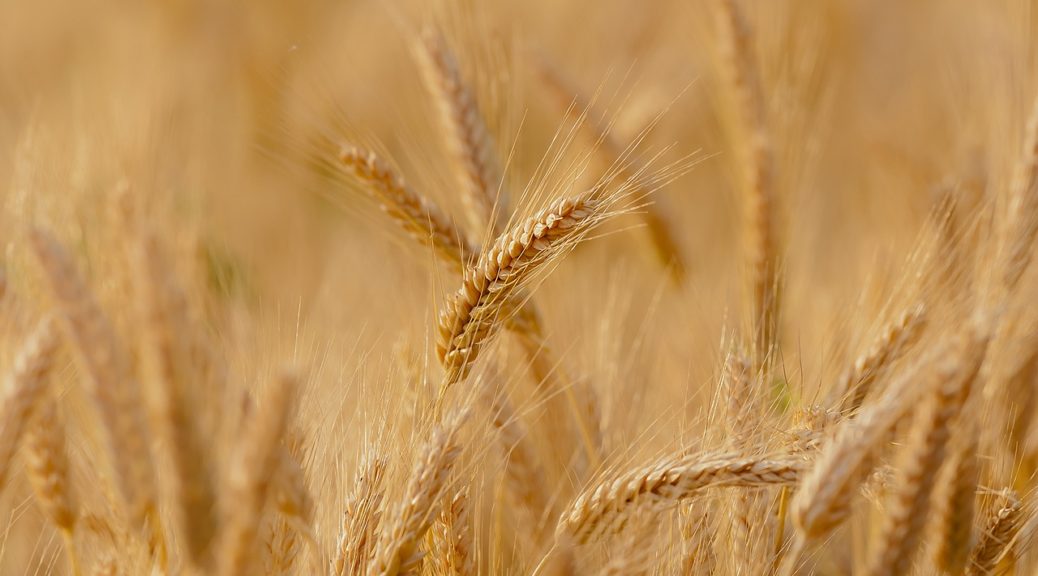
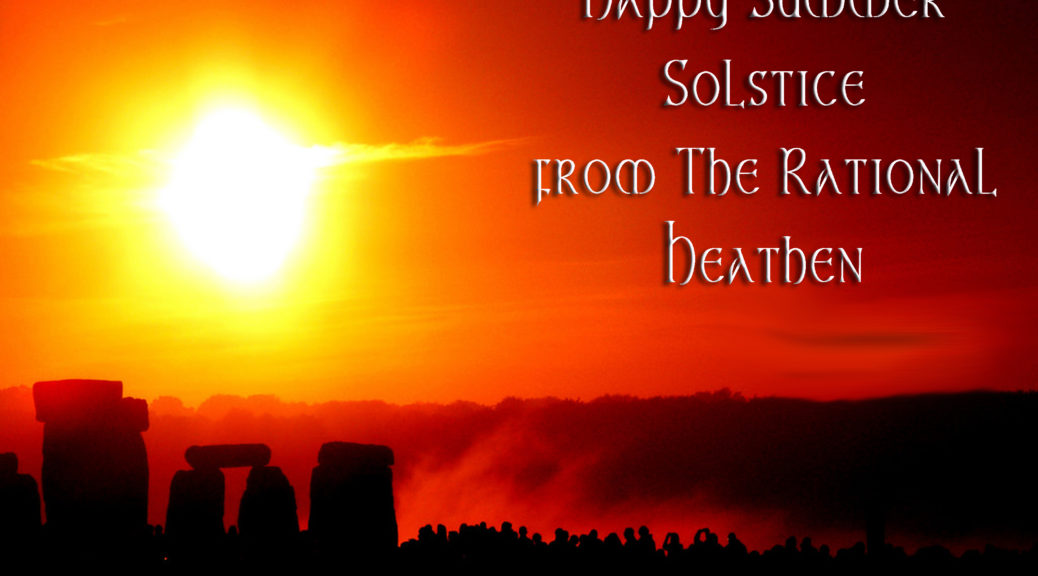
 Somehow each year, summer solstice sneaks up on me. Sure, the days get extraordinarily long here in the Northern Rockies, and sure everything is greening up fast. I have two goat kids who are now almost four weeks old, and yeah, the warmer weather is upon us. Still, I end up feeling unprepared for the solstice.
Somehow each year, summer solstice sneaks up on me. Sure, the days get extraordinarily long here in the Northern Rockies, and sure everything is greening up fast. I have two goat kids who are now almost four weeks old, and yeah, the warmer weather is upon us. Still, I end up feeling unprepared for the solstice.
 I think of the story
I think of the story  wonder in them–we know what causes the seasons. At some point, people only look forward to the seasons as times for doing human activities, and not just marveling at the season, itself.
wonder in them–we know what causes the seasons. At some point, people only look forward to the seasons as times for doing human activities, and not just marveling at the season, itself. Summer solstice is a time to thank the gods, the landvaetr, and the ancestors for everything. You may wish to have some mead or other offering to leave at your outdoor altar. If you don’t have an outdoor altar, you can choose a favorite tree outside. Whatever your offering is, be sure it is biodegradable and not poisonous to wildlife and pets.
Summer solstice is a time to thank the gods, the landvaetr, and the ancestors for everything. You may wish to have some mead or other offering to leave at your outdoor altar. If you don’t have an outdoor altar, you can choose a favorite tree outside. Whatever your offering is, be sure it is biodegradable and not poisonous to wildlife and pets.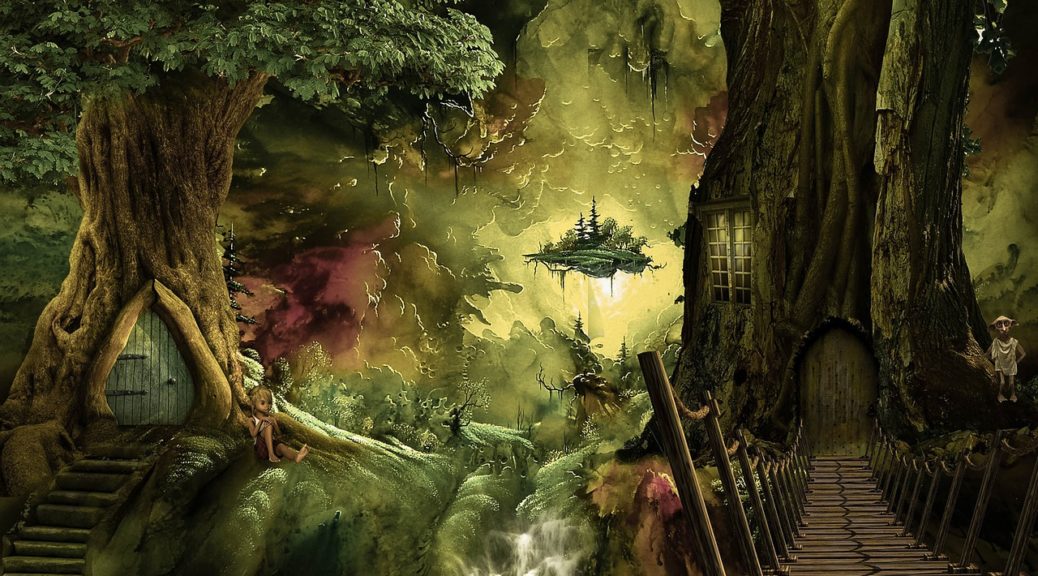


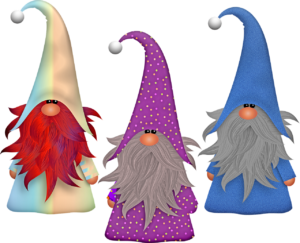 supernatural denizens. These include the
supernatural denizens. These include the  It’s my guess—and you folks can argue with me over this—that most Heathens are pretty convinced that wights aren’t corporeal creatures, but more likely spirits. Or maybe they consider wights the personification of the natural forces at work. In other words, they aren’t really singular entities. Some people feel that they are ancestors—and yes, there are good cases for this. And some people believe them to be a little below gods. Again, there is a case for that as well.
It’s my guess—and you folks can argue with me over this—that most Heathens are pretty convinced that wights aren’t corporeal creatures, but more likely spirits. Or maybe they consider wights the personification of the natural forces at work. In other words, they aren’t really singular entities. Some people feel that they are ancestors—and yes, there are good cases for this. And some people believe them to be a little below gods. Again, there is a case for that as well.